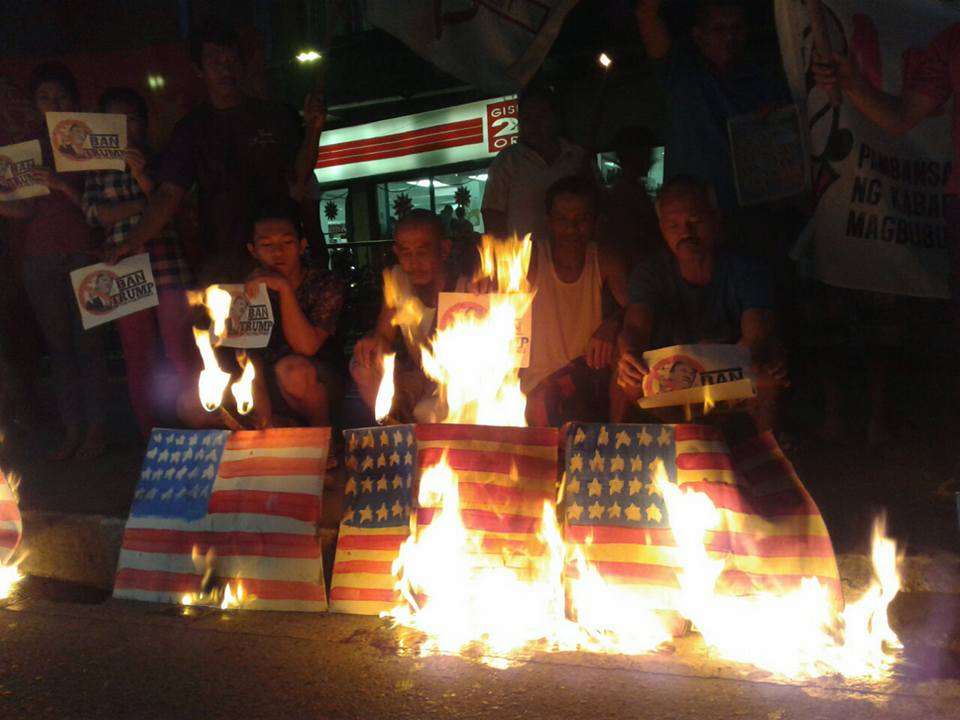
Photo courtesy of Kilusang Magbubukid ng Pilipinas
TAGUM CITY, Philippines — Thousands of farmers and rural folks are set to join the series of anti-Trump protests in Manila to call for an end, the continuing landlessness under the Duterte administration, a lawmaker said on Friday.
Anakpawis Rep. Ariel Casilao said the visit of United States President Donald Trump in the country was viewed as a “bad news” for farmers living in third world countries like the Philippines because of US’ “one-sided economic policies.”
“He’s [Trump] the number one sales agent not only of one-sided economic policies that further brought sufferings to the people in the Philippines,” Casilao said in a statement on Friday, November 11.
Casilao said that Trump has also brought what he called “unjust wars” to countries that defy its hegemony and asserting its sovereignty.
For instance, US has played a key role in the Philippines counter-insurgency program “Oplan Kapayapaan” under the Duterte administration including those of the previous administrations where it resulted to gross human rights violations and a crackdown against political dissenters.
“The US played a vital role in the government’s anti-insurgency campaign as previous and present government continue to espouse counter-insurgency manual which brought death and destruction in the countryside,” Casilao said.
Under the Duterte administration, he said 91 cases of extra-judicial killing of peasant activists have already been recorded.
The militant lawmaker said thousands of hectares of agricultural lands particularly in the Mindanao regions continuously in the hands of US-owned agricultural corporations.
According to the Philippine Statistics Authority, US is the top country destination of Philippine exports amounting to $802.59 million or 14.3 percent of the country’s total export in September this year. The number has increased by 4.9 percent from $764.84 million in September last year.
Data also showed that the US ranked fourth with 7.5 percent share of the total import in September this year amounting to $561.27 million. The share has declined by 18.3 percent from last year’s $697.19 million.
Rights of peasants
Meanwhile, around 40 small farmers and farmworkers from Indonesia, Philippines, and Thailand marched Saturday, November 11 from the University of the Philippines’ iconic Oblation statue to the Commission on Human Rights (CHR) to urge ASEAN governments to “respect, protect, and promote the right to land and access to justice of farmers and peasants in the region.”
The group of farmers are members of the international peasant movement, La Via Campesina and they are pushing for the adoption of the United Nation’s Declaration on the Rights of Peasants and Other People Working in the Rural Areas, a declaration which recognizes the rights of peasants as human rights.
Elvira Baladad, member of La Via Campesina said: “The lack of adequate policies is a major stumbling block in achieving food security and sovereignty. It is high time that ASEAN governments hear our voices and demands.”
The group said the ASEAN’s Economic Community that aims to establish a single market for the region through free trade agreements and large-scale investments has “negatively impacted small farmers and food producers” due to land grabbing and land use conversions.
Citing data from the Food and Agricultural Organization, Baladad said 70 percent of the food that people consume globally comes from small farmers.
“Small farmers and peasants feed the world. Peasants’ right must be secured to ensure that there can be food on every person’s table. We owe it all to the food producers of Southeast Asia to protect their rights,” Baladad said. (davaotoday.com)










